Content Sections
The continued bombardment of information about the links between what we eat and climate change continues apace. We’re told that meat eaters are large contributors to the destruction of the environment and that our meat consumption should be virtually nil. But just how valid are the studies propping up the headlines?
The headline of a recent article published in The Conversation is carefully designed to stop people in their tracks claiming vegan diets have a significantly lower impact on the environment. But is it true?
The Headline
Vegan diet has just 30% of the environmental impact of a high-meat diet, major study finds.
OK you think, that's a pretty big reduction in environmental impact, let's look at whether the data backs that up. At this point you switch from the article, written by the authors of the study to elucidate their findings, to the study, published in Nature Food, itself.
In order to properly differentiate between dietary preferences, the researchers sub-divided the participants into six groups – vegans, vegetarians, fish eaters, low meat-eaters (<50 g d−1), medium meat-eaters (50–99 g d−1) and high meat-eaters (≥100 g d−1). Greenhouse gas emissions (GHG) were then calculated for each group using the Monte Carlo Method that uses repeated random sampling to obtain numerical results.
As you read on, you find that the dietary data the study is based on comes from the 1990’s. This has then been compared to food and drink data from 2019.
This is a complex study with a very low number of people who classed themselves as vegans (2,041 of 55,504 participants). In the 1990’s, what they ate would most likely have been quite different to today’s, often highly processed, new-to-nature, vegan foods. It begs the question of just how relatable the data used in this paper is to today's diets? It's unclear if the analysis used by the authors takes into account the environmental impact of the production of ultra-processed foods that many now consume in an effort to reduce their meat consumption. Such food products use vast quantities of water and energy in the production process, not to mention the land degradation and chemical use needed to grow the plants from which the constituent parts are taken.
What's missing?
What’s often missing from such analyses is the question of nutrient status of vegan and vegetarian diets. This question is brought to the fore by a systematic review, published in 2022, of 141 global studies. The review identified a number of micronutrient inadequacies associated with all dietary patterns with the highest level of deficiency in vegan and vegetarian diets.
The waters of this particular discussion are now being muddied by the push for the public to accept lab-grown meat, with promises of meat that doesn't harm animals and that's more environmentally friendly than traditionally produced animal products. However, a recent preprint paper reveals that far from being kinder to the environment, such technologies come with a significantly higher environmental burden than that of beef due to the growth mediums alone, used as part of the production process.
The paper makes the very valid point that food production is damaging the environment through high chemical use, land degradation and loss of biodiversity. We absolutely need to do something about this urgently. However, there needs to be a wider discussion about the use of regenerative agricultural techniques, producing both animal and plant foods, that have been shown to heal the land, the soil, the surrounding environment and encourage biodiversity, not to mention carbon sequestration.
Interestingly as you read on, buried in the article is the statement, "This is important: you don’t have to go full vegan or even vegetarian to make a big difference".
Ultimately, we should be talking about how to reverse the environmental damage caused by industrialised food production, rather than demonising the consumption of animal products or glorifying entirely plant-based diets. What are your thoughts?
Below we take a dive into the ANH archives to look at past articles tackling the thorny subject of ditching meat from our diets, whether it be in favour of plant foods, insects or the new breed of lab-grown meats and why we need to think outside of the climate change box to rescue the health of the planet and humanity.
Dip into the ANH archives
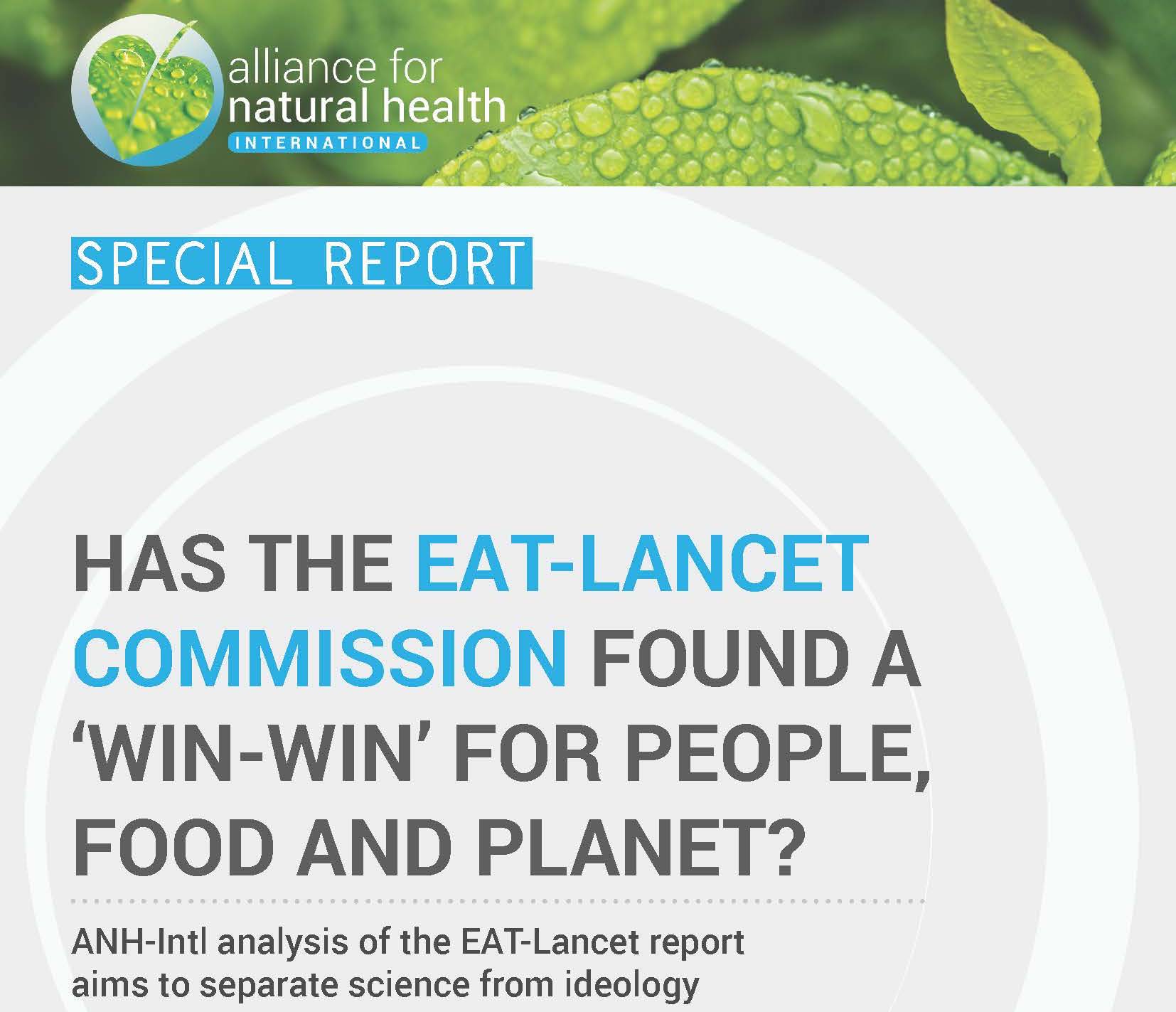
ANH-Intl Special Report: Analysis of the EAT-Lancet report
Has the EAT-Lancet Commission found a solution for people and planet? Our analysis aims to separate science from ideology.
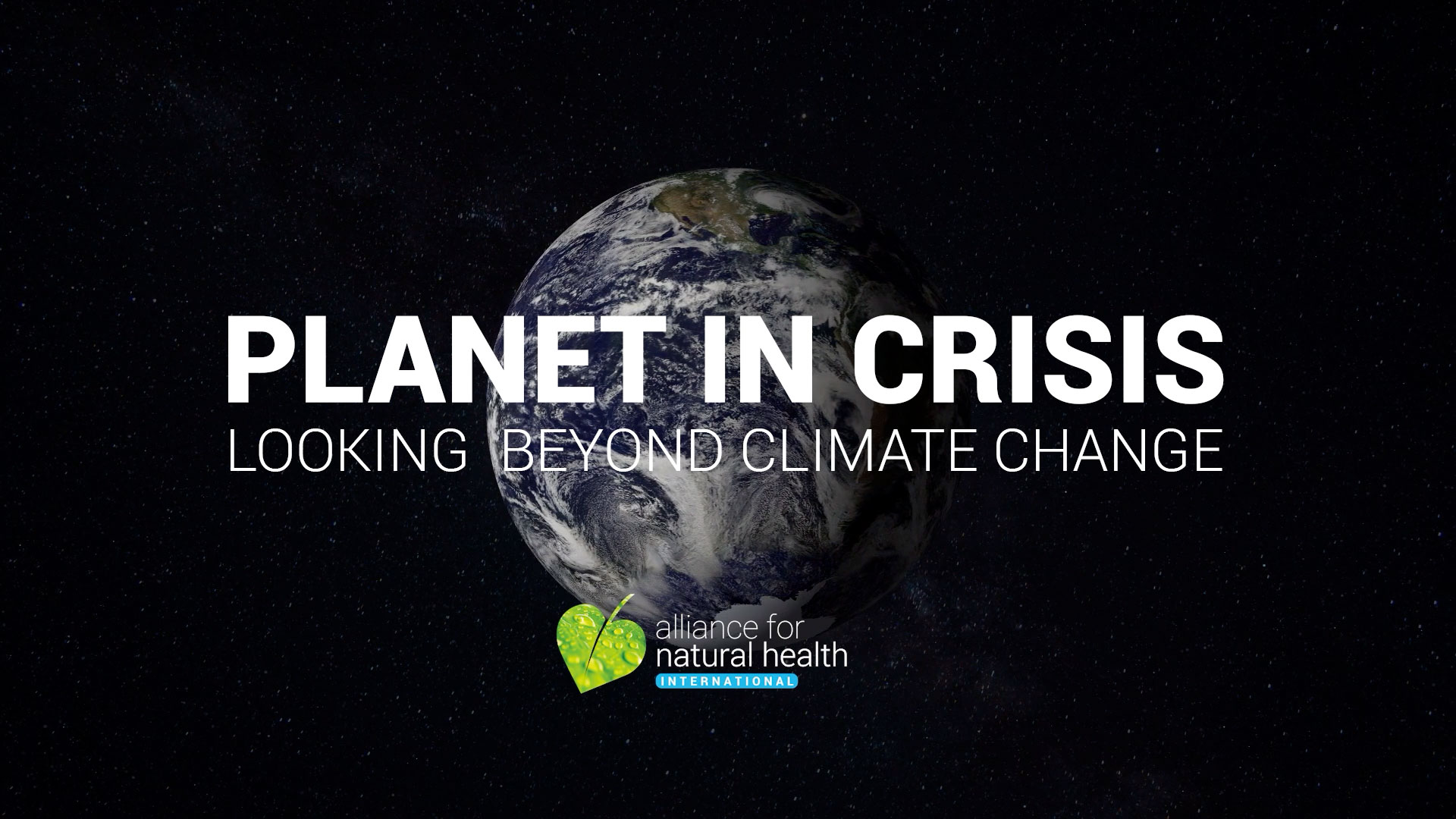
ANH Feature: Planet in crisis - looking beyond climate change
Why we should be thinking holistically if we are to rescue our planet from the cusp of environmental catastrophe

To be vegan or vegetarian, or not to be
As plant foods get increasing air time, and health authorities declare processed and red meats as carcinogens, we look more closely at the pros and cons of meat-free vs omnivorous diets.
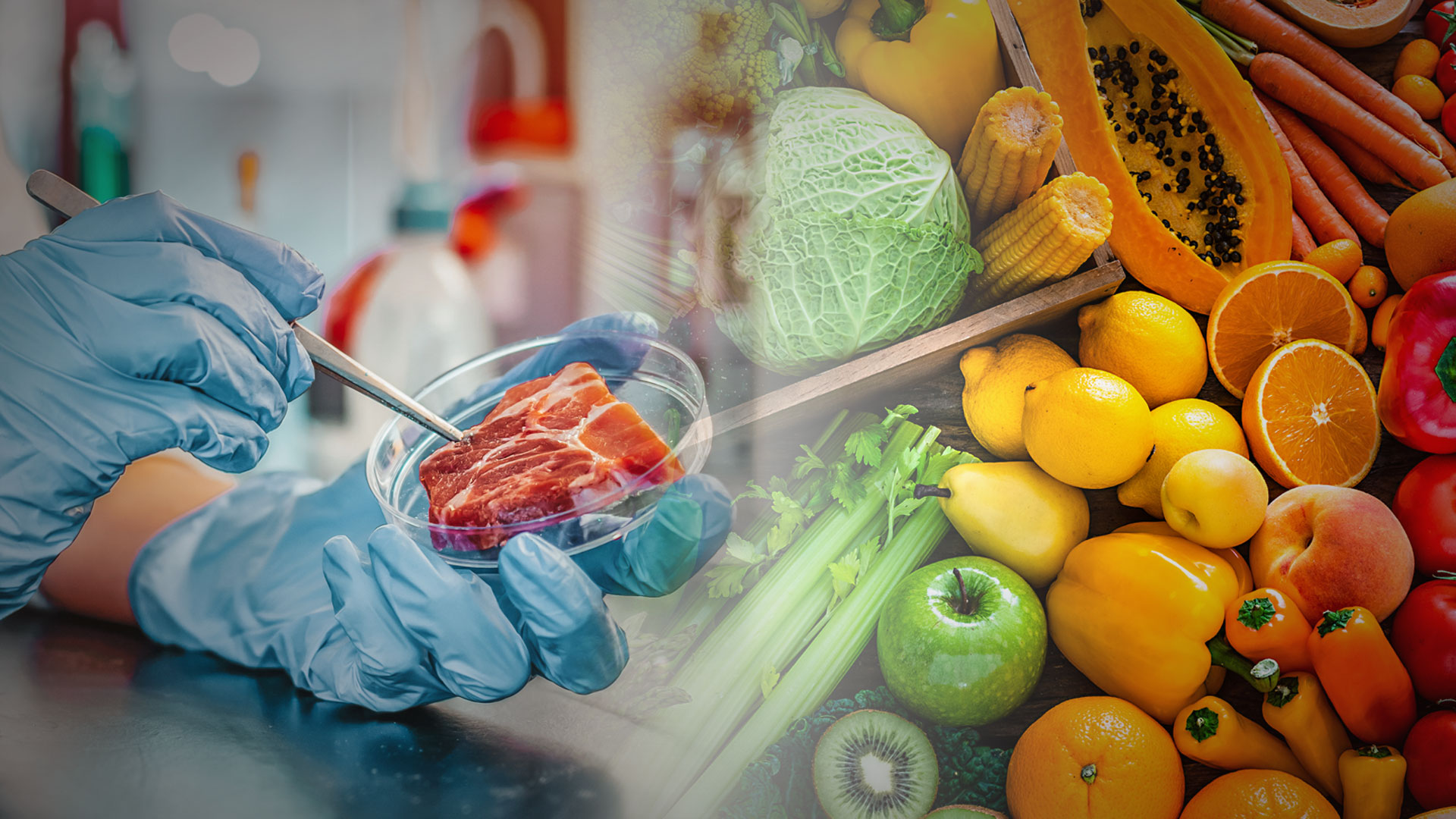
Why Big Vegan won't save human health or the environment
ANH founder Rob Verkerk PhD offers 10 reasons why he thinks the industrial food system championing veganism isn’t authentic over its claims.

Plants, insects, health and sustainability
Dr Vijay Murthy interviews Rob Verkerk and asks about the best diets for ecological and health sustainability.
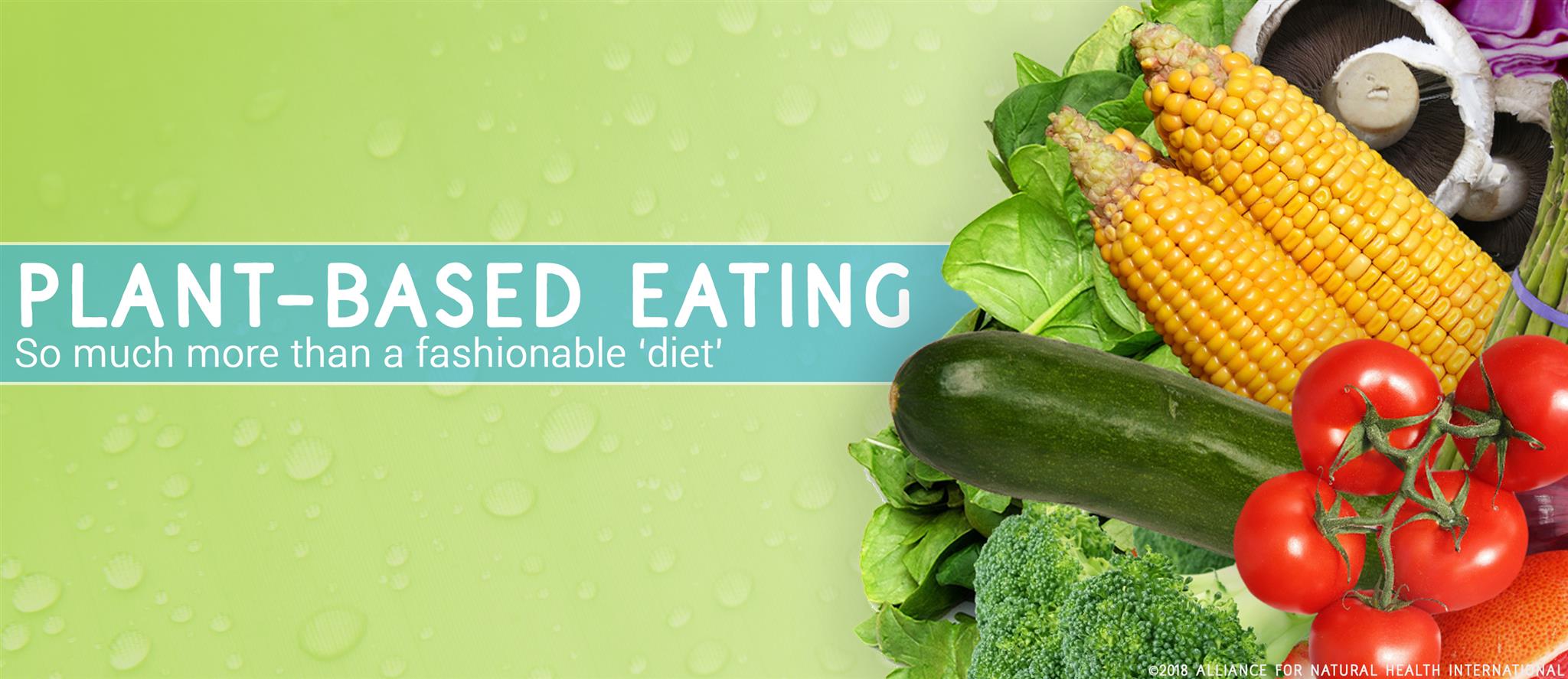
Plant-based eating – the ‘diet’ that's no fad.
Why we need plants more than they need us
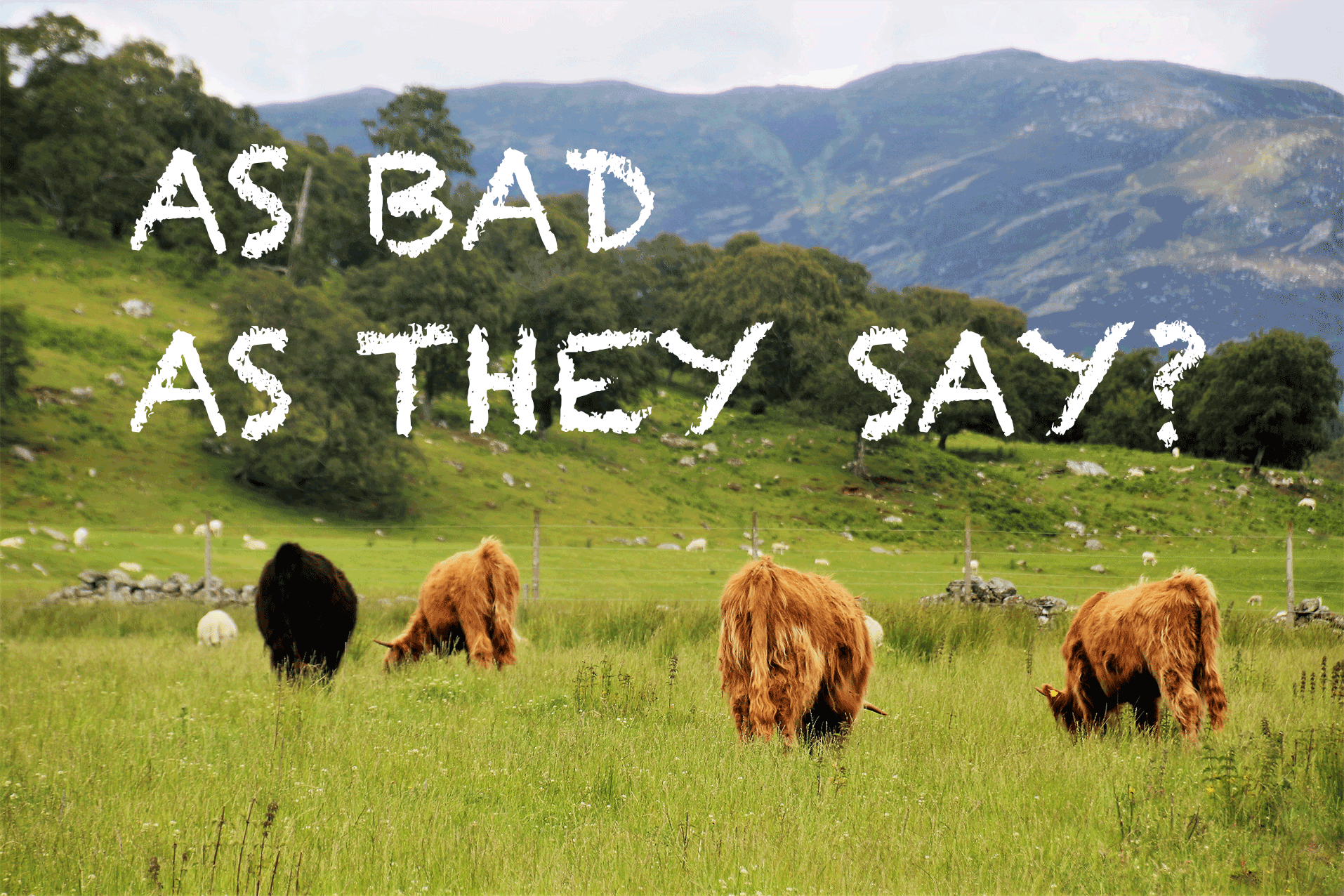
Feature: The red meat witch-hunt exposed
Find out why Gates-funded meat demonisation is non-science and the Global Burden of Disease data can’t be trusted.
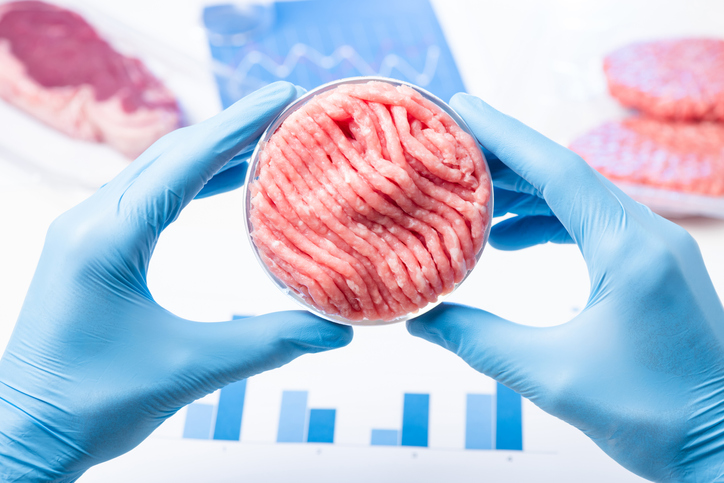
Lab-grown meat versus agro-ecological farming
Should we just roll over and let new tech try to save us and the planet?
>>> If you’re not already signed up for the ANH International weekly newsletter, sign up for free now using the SUBSCRIBE button at the top of our website – or better still – become a Pathfinder member and join the ANH-Intl tribe to enjoy benefits unique to our members.
>> Feel free to republish - just follow our Alliance for Natural Health International Re-publishing Guidelines
>>> Return to ANH International homepage




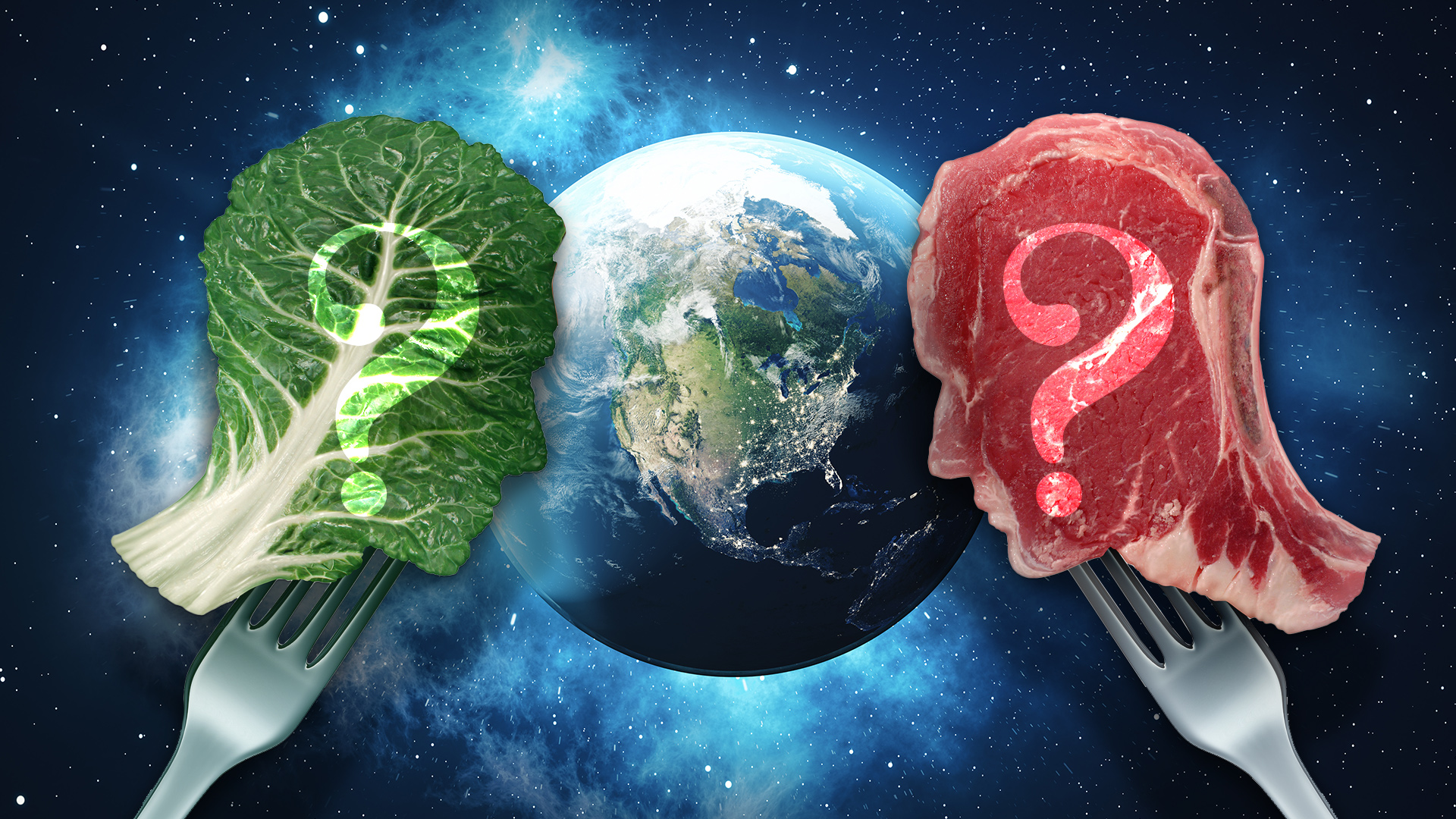



Comments
your voice counts
There are currently no comments on this post.
Your voice counts
We welcome your comments and are very interested in your point of view, but we ask that you keep them relevant to the article, that they be civil and without commercial links. All comments are moderated prior to being published. We reserve the right to edit or not publish comments that we consider abusive or offensive.
There is extra content here from a third party provider. You will be unable to see this content unless you agree to allow Content Cookies. Cookie Preferences